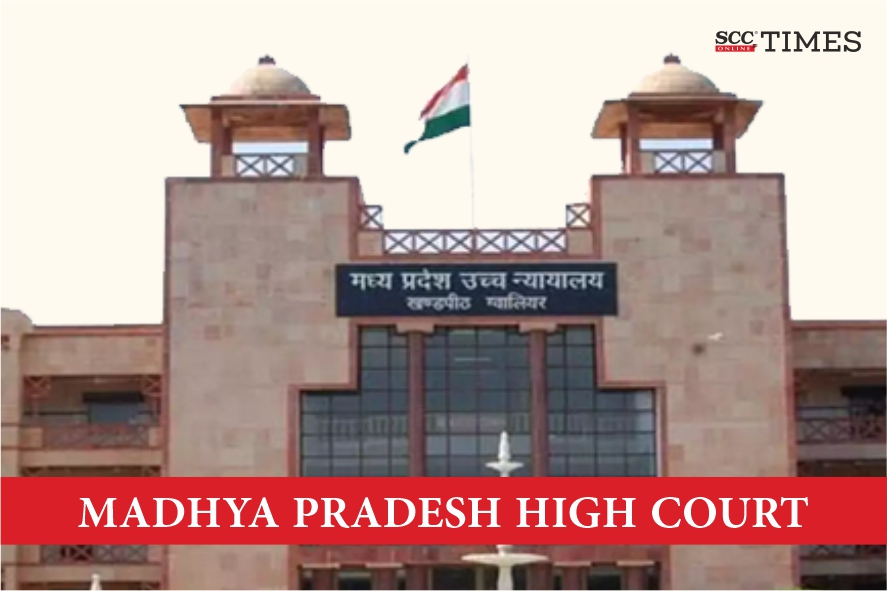Madhya Pradesh High Court: In an bail application filed by appellant, leader of group “Fisabillilah”, who is accused of promoting Jihad, supporting banned terrorist organizations (ISIS), and planning acts of violence including a conspiracy to attack the Ordnance Factory, Jabalpur, a Division bench of Sushrut Arvind Dharmadhikari* and Anuradha Shukla, JJ., upheld the trial court’s decision and affirmed the need for a careful balance between individual fundamental rights and the broader interests of national security in cases under the Unlawful Activities (Prevention) Act, 1967 (UAPA).
“This Court cannot express undue leniency to a person who is facing serious charge of terrorism and unlawful activities. The trial is also set at full motion and there is every possibility of trial being completed in its due course.”
Factual Matrix
In the instant matter, the appellant was arrested on 27-05-2023 in connection with FIR registered at NIA Police Station, Delhi, alleging violations under Sections 120-B, 153-A, 153-B, 295-A of the Penal Code, 1860 (IPC) and Sections 13, 17, 18, 20, 38, 39, and 40 of the UAPA.
The seized evidence included ISIS-related publications, incriminating digital content, pamphlets, and materials promoting terrorism. The investigation revealed that the appellant and co-accused persons were influenced by radicalized content, including videos by Islamic preacher Zakir Naik. They sought to establish Sharia law through violent means. The group allegedly shared jihad-related content via social media and WhatsApp groups, including one group renamed “Fisabillilah,” with the appellant designated as its leader (“Ameer”). The group reportedly conspired to attack the Jabalpur Ordnance Factory to procure weapons and expand their activities nationwide.
The appellant filed an appeal challenging the order dated 12-04-2024 where the trial court rejected his bail application.
Parties’ Contentions
The appellant denied the allegations and claimed that there is no prima facie case against him. It was argued the prosecution’s case relies on suspicion, lacking material evidence directly implicating him. It was contended that the appellant is physically handicapped and incapable of participating in such activities. It was argued that the appellant has no prior criminal record and is willing to comply with bail conditions. The appellant emphasised on the importance of considering custody duration and trial delay under Section 43(D)(5) of UAPA.
However, the respondent opposes bail, citing the seriousness of the offense and national security concerns. It was contended that evidence such as audio/video clips, pamphlets, and statements of witnesses allegedly establish the appellant’s involvement. It was argued that Section 43(D)(5) of UAPA restricts bail if a prima facie case exists. The respondent asserted that there is a high likelihood of appellant fleeing if released.
Moot Point
-
Whether the evidence presented constitutes a prima facie case against the appellant under Section 43-D(5) of UAPA?
-
Whether prolonged incarceration without a speedy trial violates the appellant’s rights under Article 21 of the Constitution of India?
Court’s Analysis
Legal Framework for Bail under UAPA
The Court acknowledged the UAPA’s stringent bail provisions but emphasised that the constitutional safeguards remain applicable. The Court asserted that bail can be granted under UAPA if,
-
The prosecution fails to establish a prima facie case based on credible evidence.
-
Prolonged incarceration of the accused, coupled with an improbable timely trial, results in the violation of their fundamental rights under Article 21 of the Constitution of India
The Court stated that the term “prima facie true” requires that evidence and materials provided by the investigative agency sufficiently connect the accused to the crime unless contradicted by other evidence.
Strong Prima Facie evidence
The Court found sufficient material in the charge-sheet indicating the appellant’s active participation in the alleged offenses , including digital evidence containing materials promoting ISIS and jihad, witness statements, handwritten notes matching the accused’s handwriting advocating extremist ideology, Phone records revealing communication in code words about ISIS and destruction plans, statements from witnesses under Sections 161 and 164 of CrPC, corroborating the accused’s involvement in preparing explosives and planning an attack on Ordnance Factory, Jabalpur and Call Detail Records (CDR) establishing links between the accused and co-conspirators.
Rights of the Accused
“The duty of the Court at this stage is not to weigh the evidence meticulously but to arrive at a finding on the basis of broad probabilities. While deciding the bail, the Court should not conduct a mini-trial to determine the admissibility of certain evidence, which exceeded the limited scope of a bail petition.”
While upholding the fundamental rights under Article 21 of the Constitution of India as paramount, the Court asserted that the severity of the allegations outweighed the appellant’s claim for bail at this stage. While acknowledging the prolonged detention, the Court noted that the trial was proceeding and could not justify bail solely on this ground.
Court’s Decision
The Court dismissed the appellant’s bail application, citing —
-
Strong prima facie evidence, including the appellant’s active participation in planning a terrorist attack.
-
The nature and gravity of the allegations posed a significant threat to national security.
-
While constitutional rights were acknowledged, the trial was progressing, and there was no undue delay.
The Court clarified that the above-mentioned findings are tentative, solely for the purpose of the bail application, and will not prejudice the trial.
[Mohd. Shahid Khan v. Union of India, 2025 SCC OnLine MP 6, Decided on 06-01-2025]
*Judgment by Justice Sushrut Arvind Dharmadhikari
Advocates who appeared in this case :
Shri Manish Datt, Senior Advocate with Shri Satyam Rai, Counsel for the Appellant
Shri Deepesh Joshi with Shri Qasim Ali, Counsel for the Respondent/NIA






